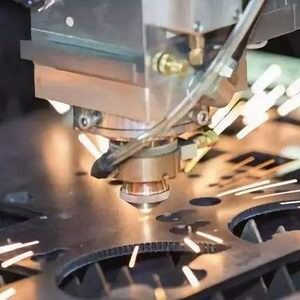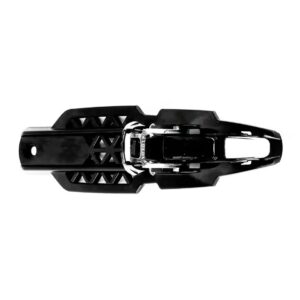The Ultimate Guide To Selecting The Perfect Metal Fabrication Manufacturer
Introduction
Metal fabrication plays a crucial role in various industries, from construction to automotive. When it comes to selecting the perfect metal fabrication manufacturer, the decision can significantly impact the success of your project. With numerous manufacturers available, it’s essential to choose one that aligns with your specific requirements and delivers quality results. We’ll provide you with a detailed walkthrough on how to choose the ideal metal fabrication manufacturer. Let’s dive in!
This guide will provide you with all the necessary information to help you select the perfect metal fabrication manufacturer. From understanding your requirements to evaluating the manufacturer’s capabilities, we’ll provide you with valuable insights at every step of the way.
Table of Contents
| 1. Understanding Your Metal Fabrication Needs |
| 2. Researching Metal Fabrication Manufacturers |
| 3. Assessing the Manufacturer’s Capabilities |
| 4. Evaluating Quality Standards |
| 5. Reviewing Past Projects |
| 6. Considering Pricing and Value for Money |
| 7. Ensuring Timely Delivery |
| 8. Examining Equipment and Technology |
| 9. Assessing Communication and Customer Service |
| 10. Reviewing Certifications and Compliance |
| 11. Evaluating the Manufacturer’s Reputation |
| 12. Checking References and Reviews |
| 13. Considering Geographic Proximity |
| 14. Exploring Customization Options |
| 15. Analyzing Supply Chain Management |
| 16. Assessing Scalability and Capacity |
| 17. Evaluating Environmental Responsibility |
| 18. Considering Intellectual Property |
| 19. Reviewing Payment Terms and Policies |
| 20. Understanding Contractual Agreements |
| 21. Assessing Risk Management |
| 22. Collaborating on Design and Engineering |
| 23. Securing Non-Disclosure Agreements |
| 24. Negotiating Terms and Conditions |
| 25. Making the Final Decision |
Now let’s delve into each of these headings and explore the details you need to consider when selecting the perfect metal fabrication manufacturer.
1. Understanding Your Metal Fabrication Needs
If you’re looking for the ideal metal fabrication manufacturer, it’s vital to know exactly what you require. Define the type of metal fabrication required, including the materials, dimensions, and complexity of the project. Determine the quantity and timeline to ensure the manufacturer can meet your production requirements.
2. Researching Metal Fabrication Manufacturers
Begin your research by identifying metal fabrication manufacturers with a strong reputation and industry presence. Look for manufacturers specializing in your specific industry or project requirements. Utilize search engines, industry directories, and professional networks to create a shortlist of potential manufacturers.
3. Assessing the Manufacturer’s Capabilities
Once you have a shortlist of potential manufacturers, assess their capabilities. Look for their expertise in your specific metal fabrication requirements. Consider various services they provided, including laser cutting, welding, and CNC machining. Ensure they have the necessary equipment and technology to handle your project.
4. Evaluating Quality Standards

Quality is of utmost importance in metal fabrication. Evaluate the manufacturer’s quality standards and certifications, such as ISO 9001. Inquire about their quality control processes, inspection methods, and testing procedures. High-quality standards ensure that your finished product meets or exceeds expectations.
5. Reviewing Past Projects
Reviewing the manufacturer’s past projects can give you valuable insights into their capabilities and workmanship. Ask for a portfolio of completed projects similar to yours. Examine the quality, precision, and finish of their work. This will help you gauge their expertise and ability to deliver the desired results.
6. Considering Pricing and Value for Money
While price should not be the sole consideration, it is important to factor it in when making a decision. Request quotes from multiple manufacturers and compare them based on the provided services, quality, and reputation. Select a manufacturer that provides competitive pricing while upholding exceptional standards of quality and service.
7. Ensuring Timely Delivery
Timely delivery is critical to keep your project on schedule. Inquire about the manufacturer’s production capacity and their ability to meet your project’s timeline. Discuss turnaround times, lead times, and their track record of meeting deadlines. Choose a manufacturer with a proven track record of timely delivery.
8. Examining Equipment and Technology
Metal fabrication requires advanced equipment and technology. Ensure the manufacturer has invested in modern machinery and technology to enhance efficiency and precision. Cutting-edge equipment enhances the precision and quality of the manufactured components.
9. Assessing Communication and Customer Service

Effective communication and excellent customer service are vital for a successful partnership. Evaluate the manufacturer’s responsiveness, accessibility, and willingness to address your concerns. Choose a manufacturer who values open communication and provides prompt and helpful customer support.
10. Reviewing Certifications and Compliance
Compliance with industry standards and regulations is crucial in metal fabrication. Ensure the manufacturer holds the necessary certifications and follows environmental and safety guidelines. Compliance demonstrates their commitment to quality and responsible manufacturing practices.
11. Evaluating the Manufacturer’s Reputation
A manufacturer’s reputation speaks volumes about their reliability and expertise. Conduct thorough research on their online presence, customer reviews, and testimonials. Check industry forums and social media platforms for feedback from previous clients. A positive reputation indicates a manufacturer’s ability to meet customer expectations.
12. Checking References and Reviews
Ask the manufacturer for references from their past clients. Contact these references to gain insights into their experience working with the manufacturer. Inquire about the overall satisfaction, quality of work, and any challenges faced during the collaboration. Feedback from references can provide valuable information for your decision-making process.
13. Considering Geographic Proximity
Geographic proximity can play a role in the selection process, especially if your project requires frequent site visits or ongoing collaboration. Choosing a manufacturer in close proximity can facilitate better communication, reduce shipping costs, and enable faster response times.
14. Exploring Customization Options
Every project has unique requirements. Assess the manufacturer’s ability to provide customized solutions tailored to your specific needs. Discuss your customization requirements and evaluate their flexibility in accommodating them. Customization options ensure that the final product aligns perfectly with your project’s specifications.
15. Analyzing Supply Chain Management
Understanding the manufacturer’s supply chain management is essential for seamless project execution. Inquire about their material sourcing practices, inventory management, and supplier relationships. A well-managed supply chain ensures a reliable flow of materials and minimizes delays.
16. Assessing Scalability and Capacity (continued)
Consider the manufacturer’s scalability and capacity to handle your project both in the short and long term. Discuss their production capabilities, workforce, and expansion plans. Ensure they have the resources and flexibility to accommodate any changes or growth in your project requirements.
17. Evaluating Environmental Responsibility
Taking environmental responsibility into account is a crucial factor in today’s world. Inquire about the manufacturer’s sustainability practices, waste management, and energy-efficient processes. Choosing an environmentally responsible manufacturer aligns with your values and contributes to a greener future.
18. Considering Intellectual Property
If your project involves proprietary designs or intellectual property, discuss confidentiality and intellectual property protection with the manufacturer. Ensure they have robust non-disclosure agreements in place to safeguard your sensitive information.
19. Reviewing Payment Terms and Policies
Understanding the manufacturer’s payment terms and policies is crucial for financial planning. Inquire about their accepted payment methods, payment schedules, and any additional fees or charges. Clear communication and transparency regarding financial matters contribute to a smooth partnership.
20. Understanding Contractual Agreements
Before finalizing your decision, review and understand the contractual agreements with the manufacturer. Pay attention to terms and conditions, warranties, and dispute resolution processes. Seek legal advice if necessary to ensure your interests are protected.
21. Assessing Risk Management
Assessing risk management practices is essential to mitigate potential disruptions to your project. Inquire about the manufacturer’s risk assessment procedures, contingency plans, and business continuity strategies. A proactive approach to risk management ensures a reliable and resilient manufacturing process.
22. Collaborating on Design and Engineering
Effective collaboration between your team and the manufacturer’s design and engineering teams is crucial for successful outcomes. Discuss their approach to collaboration, design reviews, and engineering support. A collaborative partnership enhances communication and ensures the final product meets your specifications.
23. Securing Non-Disclosure Agreements
It is crucial to have non-disclosure agreements (NDAs) in place when sharing sensitive information with the manufacturer. NDAs protect your intellectual property and confidential data. Ensure the manufacturer is willing to sign an NDA before sharing any proprietary information.
24. Negotiating Terms and Conditions

After conducting a comprehensive evaluation of the manufacturer and gathering all the required information, it is time to engage in negotiations regarding the terms and conditions of your partnership. Discuss pricing, delivery schedules, and any specific requirements you may have. Engage in negotiations to establish a mutually beneficial agreement that satisfies the needs of both parties involved.
25. Making the Final Decision
Now that all the aforementioned factors have been considered, it is time to make a final decision. Carefully assess the gathered information, carefully consider the advantages and disadvantages, and choose the metal fabrication manufacturer that most closely aligns with your project requirements, quality standards, and long-term objectives.
Frequently Asked Questions (FAQs)
- What factors should I consider when selecting a metal fabrication manufacturer?
- When selecting a metal fabrication manufacturer, consider factors such as their capabilities, quality standards, past projects, pricing, delivery time, communication, certifications, reputation, and references.
- How can I ensure the timely delivery of my project?
- To ensure timely delivery, discuss turnaround times and lead times with the manufacturer. Review their track record of meeting deadlines and inquire about their production capacity.
- Why is quality important in metal fabrication?
- Quality is crucial in metal fabrication as it ensures that the fabricated components meet the required specifications, perform as intended, and have a longer lifespan.
- Should I prioritize geographic proximity when selecting a manufacturer?
- Geographic proximity can be beneficial, especially if your project requires frequent site visits or ongoing collaboration. Nevertheless, it should not be the sole determining factor. Focus on finding a manufacturer that meets all your requirements.
- How can I protect my intellectual property during the manufacturing process?
- To safeguard your intellectual property, it is imperative to verify that the manufacturer is willing to sign non-disclosure agreements (NDAs) before disclosing any proprietary information. Consult with legal experts if needed.
- What role does sustainability play in selecting a metal fabrication manufacturer?
- Sustainability is increasingly important in today’s world. Choosing an environmentally responsible manufacturer demonstrates your commitment to sustainability and supports a greener future.
Conclusion
Selecting the perfect metal fabrication manufacturer is a critical decision that can significantly impact the success of your project. By following this ultimate guide and considering the outlined factors, you’ll be well-equipped to make an informed decision. Remember to prioritize your specific requirements, quality standards, timely delivery, and open communication for a fruitful and long-lasting partnership. Choose wisely, and enjoy the benefits of working with the ideal metal fabrication manufacturer.




